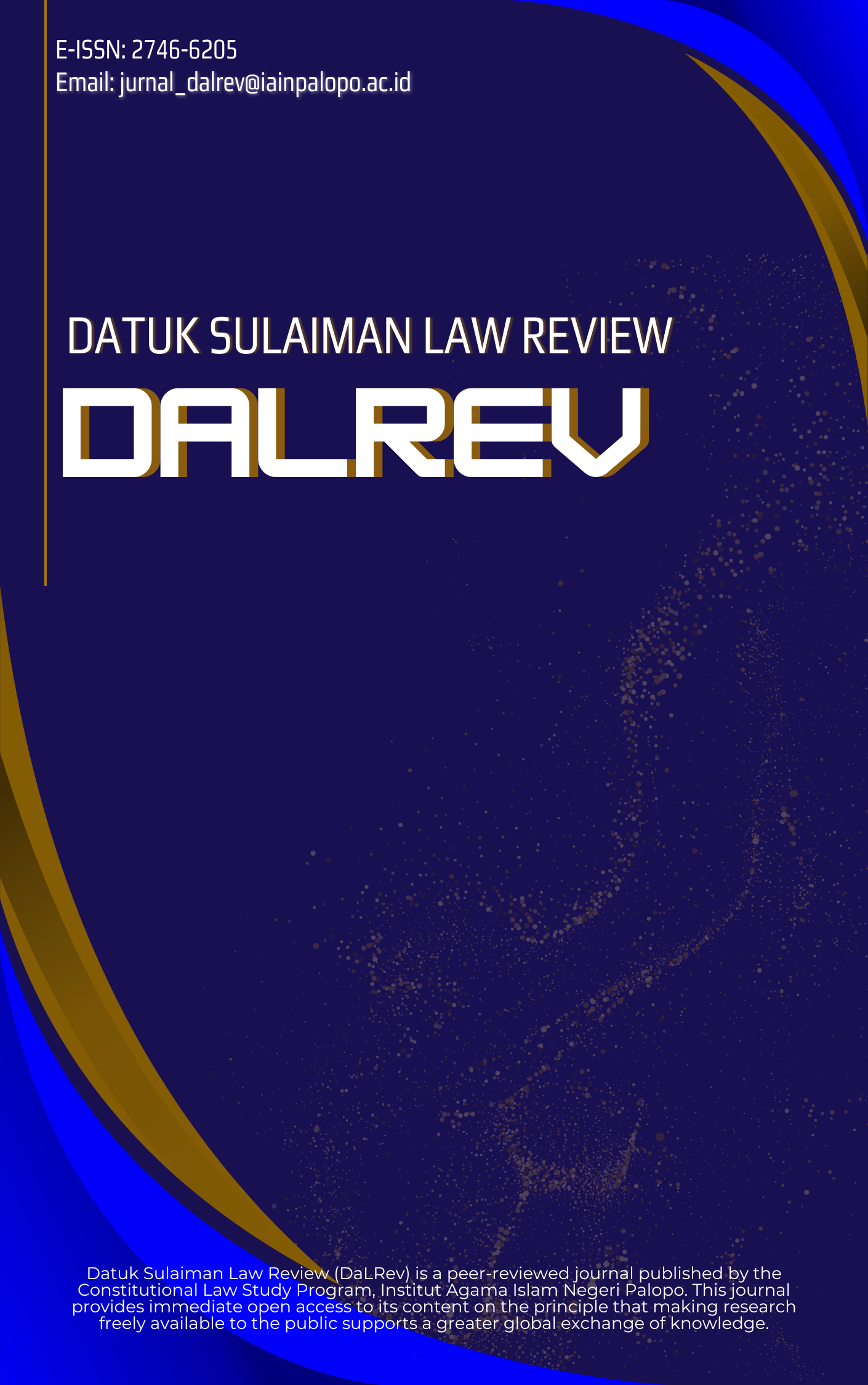PERLINDUNGAN NEGARA TERHADAP ANAK TERLANTAR (KOMPARASI HUKUM DI INDONESIA DENGAN TINJAUAN FIQH SIYASAH)
DOI:
https://doi.org/10.24256/dalrev.v4i2.5529Abstrak
This article discusses the State's Constitutional Protection of Abandoned Children in Indonesia and a Review of Siyasah Fiqh. This research aims to find out the general overview of abandoned children in Indonesia, to know the Constitutional protection of the Republic of Indonesia for abandoned children, and to find out about the fiqhi siyasah protection for abandoned children. The type of research used is library research using a normative juridical approach. The results of this research show that: 1. Based on data from the Indonesian Child Protection Commission for the last five years, starting from 2016-2020, the dominant type of child neglect cases are children with social welfare problems. In 2016-2018, there was an increase in cases of abandoned children, while in 2019-2020, there was a decrease in cases of abandoned children. 2. The Ministry of Social Affairs is assisted in carrying out its duties by the Social Service in each Regency/City. The forms of legal protection by the government for abandoned children include supervision, prevention, care, counseling, social rehabilitation, and social assistance. 3. Based on the protection of siyasah fiqh for abandoned children which refers to the siyasah dusturiyah (constitution), the government is responsible for protecting abandoned children. The government's role is very much needed in handling abandoned children in line with Islamic law. If the policy has implications for the benefit of the people, then it is considered correct by the Shari'a. On the other hand, if the policy positively impacts the people, it is considered to violate the Sharia.
Unduhan
Diterbitkan
Cara Mengutip
Terbitan
Bagian
Citation Check
Lisensi
Hak Cipta (c) 2023 Rahmayanti, Andi Sukmawati Assaad

Artikel ini berlisensiCreative Commons Attribution-ShareAlike 4.0 International License.
Authors retain copyright and grant the journal right of first publication with the work simultaneously licensed under an Attribution-ShareAlike 4.0 International (CC BY-SA 4.0) (https://creativecommons.org/licenses/by-sa/4.0/) that allows others to share the work with an acknowledgement of the work's authorship and initial publication in this journal.
Authors are able to enter into separate, additional contractual arrangements for the non-exclusive distribution of the journal's published version of the work (e.g., post it to an institutional repository or publish it in a book), with an acknowledgement of its initial publication in this journal.
Authors are permitted and encouraged to post their work online (e.g., in institutional repositories or on their website) prior to and during the submission process, as it can lead to productive exchanges, as well as earlier and greater citation of published work (See the Effect of Open Access)














